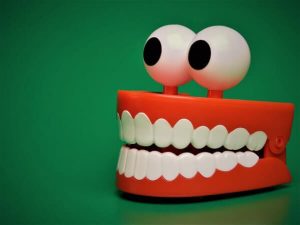Have you ever experienced a headache, jaw, neck, face, and shoulder pains and sometimes, occasional dizziness, but all your medical checkups came out clear? Odd as it may seem, but perhaps your dentist might have the right answer for you.
Temporomandibular joint dysfunction (TMD) or also known as TMJ disorder is an umbrella term used to refer to pain and dysfunction of the muscles responsible for the movement of the jaw, and the temporomandibular joints (TMJ) which connect the mandible to the skull.
It is said that there is no actual medical or dental specialty that deals with TMJ disorder and most treatments are done after all other possible conditions have been ruled out.
Most often than not, some misdiagnose the condition and usually mask the problem by treating the symptoms by various medicines, rather than identifying the underlying cause.
When you are finally diagnosed correctly, your foremost concern is the TMJ treatment cost.
Average Cost of TMJ Splints

Perhaps the most popular treatment of TMJ disorder is the use of splints. These are made of hard plastic wafer designed to change or correct the way your teeth bite together and at the same time decreases the pressure in your TMJ.
The cost of TMJ splints or stabilization splints typically cost around$1,800 to $2,000, including examination, dental impression, and fitting.
There are available over-the-counter mouth guards and TMJ sleep aids that you can buy at online retail stores like Ebay at around $7.71 to $29.89.
Average TMJ Treatment Cost
TMJ disorder entails a series of treatment from addressing the symptoms, therapy sessions, and even surgery at worst, apart from using TMJ splints. Alternative treatments are as follows:
- Pain relievers and cold therapy usually cost around $500.
- Physical therapy can cost around $50 to $300 per session depending on the severity of the condition.
- Some patients avoid taking medications and would resort to seeking alternative relief to pain. Acupuncture typically costs $50 to $70 per session.
- Botox is also deemed as an alternative TMJ treatment which is mainly used as jaw and TMJ relaxant. Typical cost ranges from $9 to $17 per unit depending on who administers. How many units will be used to treat TMJ depends on your physician. Reported cost range between $1,000 and $1,500. This treatment may be recommended to be repeated every 3 to 4 times a year.
- Another alternative would be Prolotherapy which is an injection therapy using an irritant solution into connective tissues and joints to relieve pain. This typically costs $350 each TMJ.
- In cases where all of these fail to treat the disorder, surgery like arthroscopy, which is only minimally invasive, where torn joint tissue is being repaired, typically costs around $5,000 up to $7,000.
- Orthognathic surgery where jaw is realigned and straightened costs $20,000 to $40,000
- The cost of TMJ surgery for total replacement of the joint ranges around $40,000 to $70,000 and may only be recommended as a last resort.
Factors Affecting Cost of TMJ Treatment
- Kind of treatment – this is depending on your choice or preference, or that of your dentist or physician.
- Insurance coverage – due to limited study about TMJ dysfunction, many insurance companies do not cover treatment for this disorder and some are only limited to covering the diagnostic procedures. This case is just one of those deemed under aesthetics most of the time, which are generally not covered. Others treat it as something in between medical and dental case, and that’s where the problem usually starts. But there are a few who would agree to cover it so inquire with your healthcare provider.
- Your dentist – physicians have varying rates depending on a lot of factors such as level of skills and experience. They also have varying markups they put into some diagnostic procedures and appliance, so know your dentist well and do some research.
- Clinic – what kind of clinic and the location can sometimes factor in the cost of your treatment, as some of the clinics doing TMJ treatments and surgeries have varying rates mainly due to competition. Compare prices and success history for your peace of mind.
Shopping for TMJ Splint and TMJ Treatments
Considering the cost of TMJ surgery, which also might not be the wisest solution, TMJ splints may as well be the best option after all.
TMJ splint fitting or splint impression is being done at the dentist’s clinic, for your custom-fit splint.
But you can find different off-the-shelf splints and mouth guards for temporary relief at Ebay, Amazon, and Walmart, among others.
Other facilities where various TMJ treatments are being offered are as follows:
Causes
The upper and lower teeth are supposed to fit together and should only be together in case of chewing and speaking. An ideal bite should have a small space between them and should never be resting together because they have the tendency to grind or clench, causing fatigue to the muscles.
The TMJ is responsible for the hinge and sliding motion. Bones that interact with the joint are covered with cartilage and are separated by a disk that serves as shock-absorber. The problem starts when any of the followings occurs:
- The disk moves out of its proper alignment, like as a result of bruxism or excessive teeth clenching or grinding
- Connective tissue diseases
- The cartilage is damaged by osteoarthritis or other degenerative conditions.
- The joint is damaged by trauma or injury to the jaw.
Other causes include:
- Inherited facial misalignments
- Congenital abnormalities
- Structural abnormalities of the TMJ
- Dental conditions such as teeth displacement due to earlier loss of other teeth
- Developmental abnormalities
- Fusion of bones within the joint causing loss of joint movement.
Risks
TMJ dysfunction is typically not a life-threatening condition and often, symptoms can go away even without treatment.

But some cases do deteriorate causing the following conditions:
- Intense headaches and migraines
- Face, ear, neck, shoulder and back pains. Some even progress to affect posture.
- Ringing in the ears
- Can also be linked to anxiety and depression due to impaired sleep.
- There are also studies which link TMJ dysfunction to sleep apnea and snoring.
Because the study about this kind of disorder is limited, patients often used to go home disappointed as they continue to live through the pain and discomfort because most often than not, doctors misdiagnose their condition due to lack of understanding.
Luckily, dentists nowadays are no longer limited to teeth and gum care, but also specialize in neuromuscular dentistry and can now identify the relationship between muscles, joints, nerves, among other parts that help in the jaw functions, as part of their postgraduate studies.
